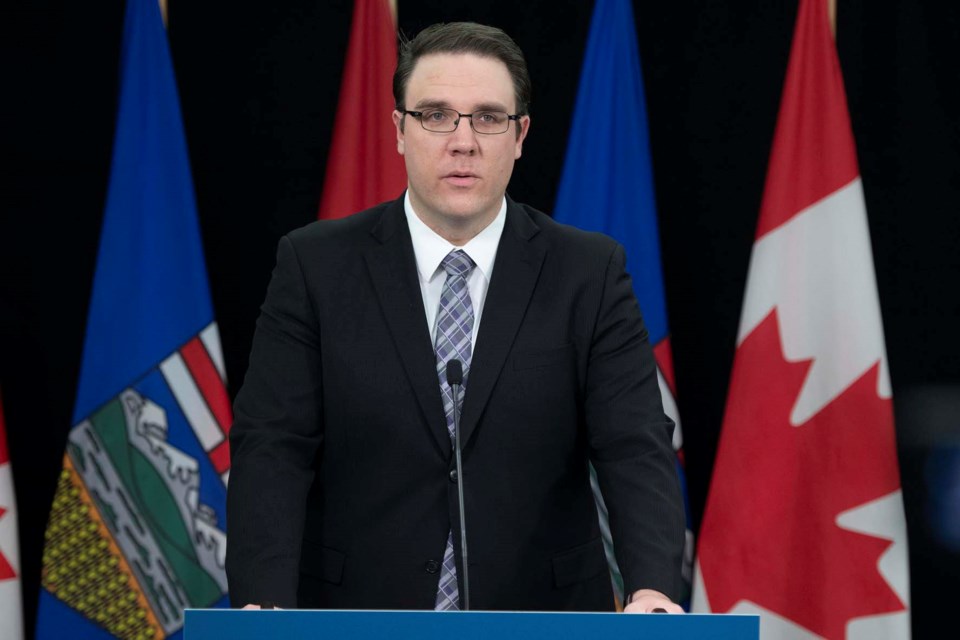Alberta and Ottawa, hours after trading jabs over which level of government was playing politics, agreed in principle to a cost-sharing deal to increase supports to address homelessness and encampments.
Federal Housing Minister Sean Fraser, on Wednesday, called out Alberta, Saskatchewan and Ontario for not formally responding to the Liberals’ $250-million funding offer made last month. He said the federal government could “no longer wait for them to muster the political will to act” and would instead go directly to municipalities.
But ministers from Alberta and Ontario pushed back against his assertion, arguing that their provinces were already in conversation with Ottawa about the potential funding agreement.
Jason Nixon, Alberta’s Minister of Seniors, Community and Social Services, said it was “disappointing to see that the federal government is playing politics with vulnerable Albertans.” He said Alberta had received a letter from Mr. Fraser that “initiated planning” but fell short on specifics and did not impose a deadline.
But the two ministers spoke later Wednesday evening and agreed that initial funding would support Alberta’s largest cities – Calgary, Edmonton, Lethbridge and Red Deer – with final details to be ironed out in the coming days. The funding will go toward shelter spaces, transitional homes and harm-reduction supports, according to Mr. Fraser’s September letter.
Mr. Nixon, in an interview on Thursday, said he is not bothered by the short-lived fight between the two levels of government. “I actually do not have a clue where the breakdown would have been on the federal side, but I’ll be honest, I’m not overly worried about it,” he said. “I’d rather just get this job done.”
The federal government will likely offer Alberta between $15-million and $20-million, said Mr. Nixon, the majority of which would go toward infrastructure. He said it is nowhere near the amount of money that the province needs to implement its long-term plans but “that doesn’t mean we’re going to turn it down.”
Elected officials across Canada have been grappling with how to address the spread of homeless encampments. The Alberta government has argued that encampments are a risk to public safety and must be removed to protect inhabitants and other residents from violence and injuries.
Sofia Ouslis, press secretary to Mr. Fraser, said the federal government has yet to finalize a deal with any province or territory, under which they would need to match contributions, but said they are close. “Productive and meaningful conversations are ongoing,” she said.
Ottawa still intends to speak with some municipalities directly, including Regina, Saskatoon and Toronto.
The Saskatchewan Ministry of Social Services was unable to respond to a request for comment from The Globe and Mail owing to election restrictions. A new government is to be elected on Monday.
Regina Mayor Sandra Masters said she is frustrated that funding to address homelessness has become a political issue. She said the province has partnered with the city on a range of initiatives and that the federal government should “follow the path of least resistance.”
“If you don’t have a solid enough relationship to make something happen, we do,” she said.
Saskatoon Mayor Charlie Clark stressed that the provincial and federal governments must work hand-in-hand with municipalities, social services and Indigenous governments to respond to the current crisis. “There is still a lack of co-ordination and it’s causing far too many people to be dying from overdoses or potentially freezing to death on our streets,” he said.
Toronto Mayor Olivia Chow, in a statement, said: “As winter approaches we want to move quickly to get people inside. We are ready and willing to partner with any government to get this done.”
Paul Calandra, Ontario Minister of Municipal Affairs and Housing, said he has a meeting with Mr. Fraser next week.




